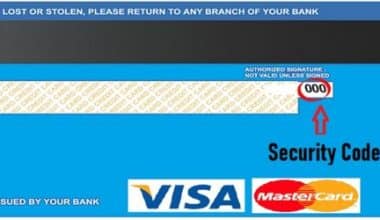The only thing worse than receiving a large credit card bill is receiving a large bill for an item you did not purchase.
One of your rights under the Fair Credit Billing Act is to dispute a charge, whether you were double-billed, overcharged, or the victim of credit card fraud. While it should (and often is) fairly simple, the process varies greatly depending on the credit card, card issuer, merchant, and your situation.
If you need to dispute a credit card charge, here’s the process to follow through, and have the incorrect item removed from your bill—along with a few pointers for resolving the situation when things don’t go as planned.
What is a Credit Card Dispute?
When you dispute a credit card charge, you submit a claim to the credit card company explaining why you are not obligated to pay for a specific purchase.
Credit card disputes aren’t intended to resolve general customer service complaints, such as the fact that you don’t like the item you received and don’t want to pay for it. However, they can protect you from a merchant’s unethical behavior, such as if you did not receive an item you ordered and paid for or were not reimbursed after returning an item.
Disputes are also necessary for resolving billing problems with your credit card company. For example, a company may incorrectly post a payment you made or send a bill to an old address after you provided a new one. Alternatively, you may notice a charge that you did not make, alerting you to the possibility that you were a victim of fraud.
In these cases, you can dispute a charge or bill and ask your credit card company to conduct an investigation. The Fair Credit Billing Act (FCBA) guarantees you a prompt response from your credit card company if you dispute a charge and protects your credit score during the dispute investigation.
What Are the Reasons to Dispute a Credit Card Charge?
While there are numerous reasons to dispute a credit card charge, they all fall into one of three categories: the charge was unauthorized, a billing error occurred, or there was an issue with the purchase. Let’s take a closer look at each category and look at some examples.
#1. Unapproved charges
It is fraud if someone uses your credit card to make a purchase that you did not authorize. The Fair Credit Billing Act limits a cardholder’s liability for unauthorized credit card use to $50. Most credit cards go above and beyond by implementing zero-liability policies, which state that cardholders are not obligated to pay anything in the event of unauthorized credit card use.
You can avoid credit card fraud by immediately notifying your card issuer if your card is lost or stolen. However, if an unauthorized charge occurs before you do this, you can dispute it. If a criminal obtains the card information but not the card itself, unauthorized charges can occur while your card is still in your possession. You can also dispute these types of charges.
#2. Billing Errors
A billing error is any charge made by a merchant inadvertently. The most common examples are multiple charges for the same purchase or a charge for a subscription service after you have canceled it. If a merchant refuses to refund a billing error, you can file a dispute.
#3. Purchase Complications
If you have a problem with a product or service you purchased, filing a dispute may help you get your money back. Remember that the Fair Credit Billing Act requires you to first attempt to resolve the issue with the merchant.
The following are some of the reasons for this type of dispute:
- A product did not arrive.
- The merchant did not provide the service you paid for.
- There was a problem with the quality of your purchase.
How Long Do You Have to Dispute a Charge?
Normally, you have 60 days from the date of the charge on your credit card statement to dispute it. The Fair Credit Billing Act establishes this time limit, which applies whether you’re disputing a fraudulent charge or a purchase that didn’t go as planned.
Check your cardmember agreement to see how much time you have to dispute a charge on your credit card. After opening a credit card, you should have received this in the mail, but it’s also usually available online. The billing rights section should include information on dispute time limits.
If you do not begin your dispute within the time frame specified, you may be forced to pay that money. That’s why you should review your credit card statement every month for unauthorized charges.
How to File a Credit Card Dispute
The method for disputing a credit card charge is determined by the nature of the problem. To have your dispute protected by federal law, you must file your request within 60 days of the date you received the bill containing the error.
#1. Billing errors:
If your issue is classified as a billing error, which includes all of the bullet points listed above, the FCBA governs the dispute process. Take the following steps:
- Use the Federal Trade Commission’s (FTC) sample letter to describe the problem to the credit card issuer’s billing inquiries department.
- Send copies of any supporting documentation, and keep a copy of your letter for your records.
- Ensure that the letter is received by the credit card company within 60 days of the error appearing on your statement.
#2. Fraudulent charges:
The FCBA limits your liability for unauthorized transactions to $50; however, some credit card companies reduce this to $0. Furthermore, you are not liable for charges if you report a stolen or lost credit card before it is used. Here’s how to dispute a charge on your credit card bill that you didn’t make:
- Contact your credit card company as soon as possible. For disputing unauthorized charges, you can use the FTC’s sample letter.
- If your card was lost or stolen, the company may request a police report or other documentation.
#3. Purchase quality or service issues:
Some credit card disputes are more directly related to a seller’s problem, such as undeliverable goods. In this case, contact the merchant first to obtain a refund or to resolve the issue. If they do not respond or are unwilling to work with you, you can initiate a chargeback with the credit card company directly. The FCBA will protect you if the charge was for more than $50 at a seller within 100 miles of your billing address and you attempted to resolve the issue with the merchant first. Here’s how to file a chargeback request:
- File a dispute with your credit card company’s customer service portal by phone, mail, or online.
- Include any supporting documentation, such as emails, invoices, or receipts, if you have them.
The credit card company may refund you at this point or forward the request to the credit card network (such as Visa or MasterCard). The network will then decide whether or not to complete the chargeback, which may necessitate discussions with your credit card company and the seller. If the network rules in your favor, the card company will refund the charge.
Read Also: 10+ WORST CREDIT CARD PROCESSING COMPANIES According to Reviews
Within 30 days of filing a dispute, the credit card company must send you a letter acknowledging the dispute. The dispute must be resolved within 90 days of the company receiving your letter.
You are not required to pay the disputed charge while it is being investigated, but you must pay the remainder of your bill, including interest. During the investigation, your credit score will not be affected, and your bill will not be reported as late, but the dispute will appear on your credit report.
If the company admits to making a mistake, you must be reimbursed for your money as well as any interest or late fees. If it is determined that you do, in fact, owe the money, you must receive a written letter explaining why, and you must pay the amount in dispute plus any interest. You can refuse to pay, but you must notify the credit card company within 10 days or your account will be placed in collections.
Reporting Disputed Charges: Which Comes First, Rights or Convenience?
Many credit card companies have a section on their website or in their app where you can dispute charges. But, according to Kroub, you should think twice about using it.
The reason for this is that you may be waiving some of your dispute rights. This is because some issuers include arbitration clauses and another binding language in the fine print of a website or app.
And, given that you’ve already agreed to some form of arbitration by using the card, why add to their defense?
After reporting the disputed charge over the phone, follow up with a letter with a return receipt or an email.
When you call, tell them you’re filing a dispute, he says. “Most major credit card companies will have procedures in place.” A phone call isn’t always enough; you’ll need to follow up with a letter. A letter will protect your Fair Credit Billing Act rights.”
Want to save time? You can use a sample letter provided by the FTC (which enforces the Fair Credit Billing Act).
5 Components of an Effective Credit Card Charge Dispute Letter
#1. The Basics
First, make sure you have the essentials: your name, account number, address, and the charge you’re disputing.
#2. The reason the charge is incorrect
Whether you’ve been the victim of identity theft, your merchandise never arrived, or you were billed twice for the same purchase, do your best to help the card company connect the dots. Explain why this charge should not be on your bill.
#3. Provide documentation
Include any documentation that will help prove your point with your letter (or email). If the fraudulent charge was made at a Target in Texas and you have a work time card or gas receipt proving you were in Philadelphia that day, send copies of those documents.
What if the item was incorrect or damaged? Take a picture and include it with your dispute.
If your disputed charge was the result of identity theft, you can use the FTC to download and complete an identity theft affidavit. Print it and keep it with your police report at your local police station. Obtain a copy of the police report (with a case number). That’s another piece of evidence you can present to your card company to convince them to remove the charge from your bill.
#4. The correct location
The card company will have a billing dispute address, as well as a few other addresses for other matters. And, in this instance, one size does not fit all.
Sending an excellent letter to the incorrect address is the same as not sending it at all.
#5. The Time Frame
You have 60 days to dispute the disputed charge after it appears on your monthly statement. So, as soon as you discover the charge, you should dispute it.
Following up
You’re not finished just because you’ve sent the letter. Keep copies of your letter, documentation, and proof that it was delivered.
Check-in with the company to see if it received your letter and what action it is taking.
Every time you contact the company, keep a log with detailed notes. Obtain the time, date, employee name, and company ID number. Make a brief note of what was said.
If you end up in court, the more evidence you have that you were diligent, the better off you will be.
What will happen next?
According to the terms of the Fair Credit Billing Act, the company has one month to acknowledge your dispute and another two months (or billing cycles) to investigate.
When the company has completed its investigation, it must notify you of its decision in writing. If the company chooses not to remove the charge, it must provide an explanation for why.
If the company decides not to remove the charge from your bill, you have 10 days to respond. He also suggests speaking with a consumer protection attorney.
Look for someone fluent in the Fair Credit Billing Act and who regularly appears in federal court on behalf of consumers. The National Association of Consumer Advocates has a list of consumer attorneys in your state. According to him, many consumer protection statutes are fee-shifting statutes, so representation is frequently free.
Another factor to consider: Depending on the arbitration clause in your credit card agreement, you may not be able to sue, according to Rheingold.
Does Disputing a Charge Affect Your Credit?
Disputing a charge has no effect on your credit. You don’t have to be concerned about a dispute lowering your credit score.
During the dispute process, you must continue to pay your credit card bill as usual. As previously stated, card issuers typically remove disputed charges from bills until the dispute is resolved, but you are still responsible for paying the remainder of the bill.
What if a Dispute Is Denied?
If your dispute is denied, the charge will be returned to your credit card. You have the legal right to know why your dispute was denied and how you can appeal the decision. Your credit card company will most likely send you a written explanation as well as instructions on how to file an appeal.
An appeal gives you a second chance to present evidence and win the dispute. If that fails, you can file a complaint with the Consumer Financial Protection Bureau. You can hire a lawyer as a last resort, but the cost is prohibitively expensive for most disputes.
How to Contact Major Credit Card Companies
Here are the billing inquiry mailing addresses and contact information for some of the country’s largest credit card companies.
| Issuer | Contact information |
| American Express | American Express Attn: Billing Inquiries P.O. Box 981535 El Paso, TX 79998-1535 |
| Bank of America | Bank of America Attn: Billing Inquiries P.O. Box 982234 El Paso, TX 79998-2234 |
| Capital One | Capital One Attn: Disputes P.O. Box 30279 Salt Lake City, UT 84130-0279 |
| Chase Bank | Sign in to your online account and file a dispute, or call 1-866-564-2262 for debit card customers, 1-800-955-9060 for credit card customers, and 1-888-269-8690 for business credit card customers. |
| Citibank | For credit cards, log in to your online account and visit the Dispute Center, or call the number on the back of your card. For debit cards, contact an agent through the online chat, or call 1-888-248-4226; Text Telephone (TTY): 1-800-945-0258. |
| Discover | Call 1-800-DISCOVER, or message an agent from your online account. |
In conclusion
Many consumers are walking a financial tightrope in the COVID-19 era. Many people are making careful decisions about their money and credit right now. It’s never been more important for people to know where they stand with these corporations.
Consumers can use this tool to dispute incorrect charges. However, the process can also necessitate diligence and tenacity.
If everything is done correctly, the charge will be removed from your bill as if it never existed. However, if not handled properly, that charge may end up on [your] credit report, causing credit damage.
Credit Card Dispute FAQs
Can I dispute a credit card charge that I willingly paid for?
Never dispute a credit card charge that you willingly paid for. Not only is this unethical, but you will lose the initial credit you receive if you do not deserve it.
What happens when you dispute credit card charge?
During the dispute process, your credit card company will most likely remove the charge from your statement. You won’t have to pay it until the dispute is resolved, and if you win, you won’t have to pay it at all.
How long do credit card disputes take?
The time it takes to resolve your dispute depends on the type of dispute and the merchant, but it can take up to 60 days for credit card disputes and 90 days for debit card disputes. Keep in mind that contacting the merchant first often results in a faster resolution of the dispute.
Related Articles
- BUSINESS DEAL: How To Negotiate a Business Deal (With Examples)
- PAYPAL SELLER PROTECTION: Detailed Guide to the PayPal Seller Protection Policy
- Best Top 13 BILLING SYSTEMS FOR SMALL BUSINESS in 2022 (Updated)
- How To Make Sure Your Business Remains HIPAA-Compliant
- OFFICE MANAGEMENT SYSTEM: Best Free and Paid Options In 2022






